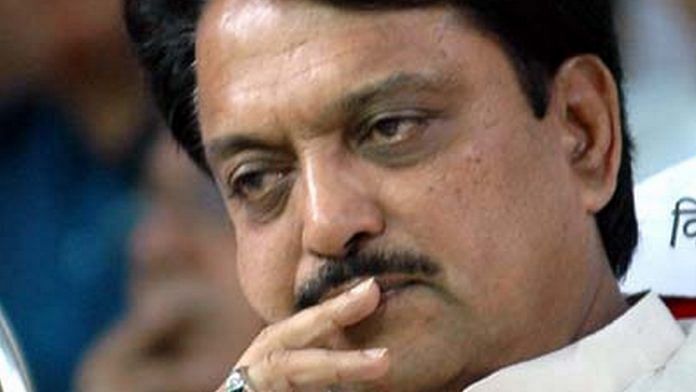New Delhi: Vilasrao Deshmukh, a strongman from the Marathwada region of Latur, was a political craftsman, who went on to become the chief minister of Maharashtra twice holding a coalition government — Democratic Front.
On both the occasions, he, however, failed to complete his five year terms. One of the most crucial periods of Deshmukh’s term as the chief minister was the 26/11 Mumbai terror attack when he was criticised for his ‘inept’ handling of the matter.
ThePrint remembers Vilasrao Deshmukh, his political journey and more on his 74th birth anniversary on 26 May.
Also read: Morarji Desai, the prime minister for whom time in PMO was ‘tougher than prison’
Beginning of political career
Deshmukh was born on 26 May 1945 at Babhalgaon village in Latur, Maharashtra. He completed his graduation from ILS Law College, Pune.
He began his political journey as the sarpanch of his village and later became a member of Congress’ youth wing. Deshmukh was elected to the Maharashtra assembly for the first time in 1980 from Latur and re-elected in 1985 and 1990 from the same constituency.
He soon became a popular Congress leader from the Marathwada region and held important portfolios of revenue, agriculture, home, industries and education between 1982 and 1995.
In 1995, when he lost in the state assembly elections, Deshmukh was denied nomination to the party’s council. Deshmukh defied his party as a result of which he was expelled for a period of six years. However, he re-joined the Congress within a year.
His stint as CM
In 1999, Deshmukh was re-elected as an MLA from Latur and the Congress chose him as the chief minister.
Deshmukh headed a coalition government, Democratic Front, and Sharad Pawar’s Nationalist Congress Party was an alliance partner.
In 2003, Deshmukh was suddenly asked to resign from his post. This was also the time when the state Congress was facing increasing factionalism.
According to a report in Rediff, Deshmukh had defied his boss — Congress former president Sonia Gandhi — not once, but on several occasions.
No Congress leader said anything on why Deshmukh was suddenly asked to resign, but veteran party leader and former President Pranab Mukherjee said, “A change was required.”
Deshmukh did put up a stiff resistance when he was asked to resign unceremoniously. He claimed that he continued to have the support of the majority of MLAs in the state assembly. But Deshmukh’s resistance could not do much for him as the Congress high-command finally chose Sushilkumar Shinde instead.
However, Deshmukh did not remain out of the chief ministerial post for a long time.
In the 2004 Maharashtra assembly elections, the Democratic Front once again came to power and Deshmukh was chosen as the chief minister.
Also read: Sudhakarrao Naik, the CM who failed to tackle Bombay riots after Babri Masjid demolition
Row over Taj visit
During his second term too, Deshmukh was not able to complete his tenure due to the 2008 Mumbai terror attack.
His visit to the Taj hotels with his son Riteish, a Hindi film actor, and filmmaker Ram Gopal Varma, after the 26/11 carnage sparked outrage across the nation.
Deshmukh was even condemned by Congress’ allies — Rashtriya Janata Dal, Lok Janshakti Party and Samajwadi Party — for the way he handled the situation after the horrific terror attack.
Citing moral responsibility, Deshmukh finally resigned on 5 December 2008.
However, instead of fading from political limelight, Deshmukh used Rajya Sabha as a backdoor to enter the Parliament. In the 2011 Union cabinet reshuffle, he became the minister of heavy industries and public enterprises. However, his political career did not last much long.
In 2011, he was diagnosed with cirrhosis, a liver disease, and in August 2012, he was also diagnosed with liver and kidney failure.
Attempts to carry out a liver transplant failed, and Deshmukh died on 14 August 2012 at the age of 67.




the bjp rule will close in2024 and a new farmers leader would come to power in India!!!
Could have atleast mentioned Adarsh Scam